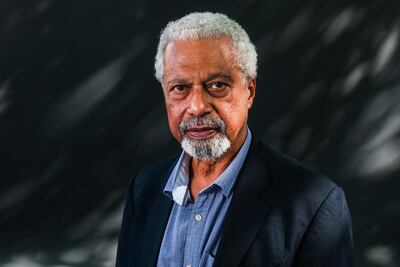Sharjah is a city of vibrant architectural heritage, enriched with cultural wealth for museum and art lovers. It is also famed for numerous tourist sites, from the historic, like the Heart of Sharjah, to the modern Al Qasba and the waterfront of Al Majaz overlooking the Khaled Lagoon.
I know now, why Sharjah is known as "the smiling emirate". How could I not? Its distinguishing feature is that every traveller there finds a friendly and welcoming atmosphere.
I was privileged enough to be one of those travellers this week, invited to be a guest speaker at the Sharjah International Book Fair (SIBF), which runs until November 13. Publishers from across the globe are gathering right now to trade in literary treasures, and so this year's SIBF has been a hive of activity. Under this year’s theme of "There's always a right book", SIBF is showcasing an impressive 15 million books from 1,576 publishing houses, 1.3m of which will be unique titles from around the world.
The opening ceremony of the festival, hosted by by Sheikh Sultan bin Muhammad Al Qasimi, was worth the wait. Sheikh Sultan – honoured with the Simon Master Chairman’s Award at the London Book Festival in 2017 for his contributions to the publishing industry – spoke about the diversification of culture and the ability to retain one’s heritage and identity. In his opening remarks at the ceremony, Ahmed bin Rakkad Al Ameri, chairman of the Sharjah Book Authority, confirmed that this year's SIBF "has topped all the world's fairs, becoming the largest book fair in the world in terms of buying and selling rights".
I was invited to SIBF in part to share my own book, My Hair is Pink Under This Veil, with an Arab literary world – and other global attendees – hungry for content that reflects Islamic culture in the modern age.
The privilege of being here is especially significant at time when so many other events have had to move online. Sharjah is a multicultural city, and it’s an incredible time for publishers, authors and the literary world to be able to meet after a year and more of lockdowns and Covid-19.
With 83 participating nations, it is a noteworthy event for the literary sector. Its keynote speaker will be Tanzanian author Abdulrazak Gurnah, winner of the 2021 Nobel Prize for Literature, and he will be joined by other prominent attendees. SIBF 2021 is also organising 355 activities, shows and workshops for children, outdoor exhibitions, theatrical and dance performances, musicals, culinary events, a Crazy Science School, workshops for aspiring illustrators and designers and much more.
What's more, the event opened its doors on UAE flag day. Could it get any better?

Of course, safety is still paramount. I took a PCR test before leaving the UK, had one at Dubai and another one 24 hours before the opening ceremony.
During the pandemic, many people faced lifestyle changes and one of these was the way in which we consumed information. Research has shown that mental health affects people’s ability to concentrate on reading, with anxiety being a significant factor, and isolation playing a part in these feelings of unrest. Therefore, book fairs are an excellent way back into the world of books, promoting a sense of community and reigniting a passion for reading.
Interestingly, despite an early demand for content relating to pandemics, this interest waned quickly and people began to explore genres the wouldn’t normally have chosen. Following the controversy over police brutality and racism, many more readers sought out books by non-white authors. The diversity of SIBF gives authors of all nationalities the opportunity to promote their works to audiences they might not otherwise have reached.
There is currently a high demand for African literature, and how the industry is adapting to this was one of the topics discussed at the Publishers’ Conference.
I found this particularly encouraging as there is a vast pool of untapped literary talent within black and minority communities worldwide. To know that writers on the African continent are finally receiving the recognition they deserve is heart-warming.
African culture has generally been seen in other parts of the world through the beliefs and values of others, not by the people who live in Africa, so firsthand perspectives are crucial, particularly in raising social awareness and quashing false perceptions.
The novel Things Fall Apart, by Chinua Achebe, has become known as the “Father of African Literature”, as it reshaped both African and world literature. It follows the lives of people trying to understand which belief system to follow. Achebe certainly inspired other African writers to pursue their dream of becoming successful, published authors.
As we enter a brave new post-Covid world and reflect on events of the past year and a half, particularly relating to diversity and inclusion, it is clear that social justice is at the forefront of the agenda as we move forward.
This includes a new and exciting direction for literature, culture and knowledge, and I am excited to see some inklings of this at SIBF.

